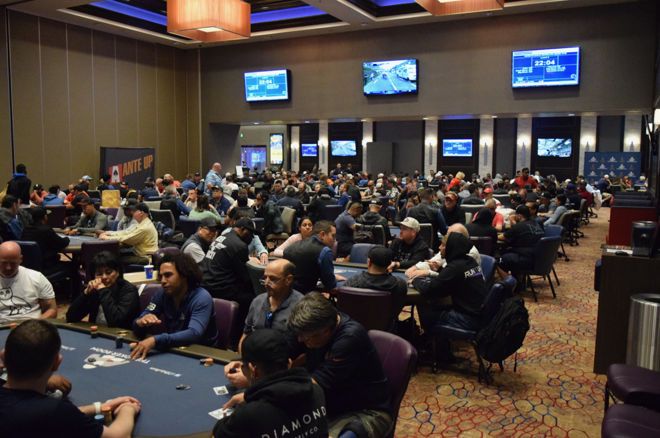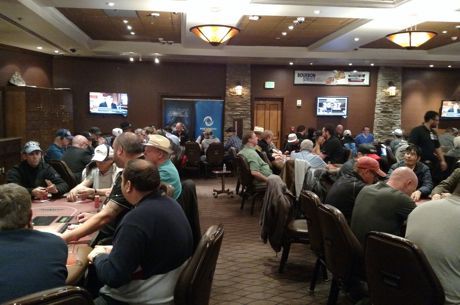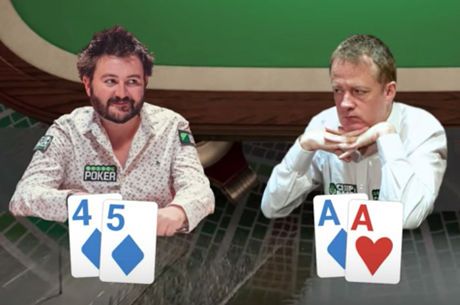Thoughts About That Post-Session Question 'How'd You Do?'

Here's a question you often hear being asked in a poker room: "How'd you do?"
Whenever the question is asked, it necessarily raises related questions of etiquette, both in the asking and the answering. I've often pondered each, but never addressed them or seen them addressed in any poker column.
Is it okay to ask someone how they did, perhaps when doing so pointing out that they appear to have won, or lost, did well, or "went broke"? And if you're asked the question, is it okay to lie, prevaricate, or evade?
Also when answering, must you follow the same rules of honesty that you would follow in normal conversation with the person who asks? Or does the less honest code of the poker game prevail? In other words, just as you can bluff or use deception in the game, are dishonest and misleading statements allowed when answering questions about it afterwards?
What follows are my own personal guidelines on the matter. They seem to provide the right balance for me among privacy, honesty, decency, and fraternity. I'd be interested in your view.
Asking (and Answering) the Question
First of all, it's no one's business how you did, whether you won or lost, and surely by how much you might be ahead or behind.
There's the obvious exception of a playing partner with whom you share a bankroll or percentages of each other's wins or losses (we can deal with the propriety of such arrangements in another column). And there's the possible exception of a spouse or life partner with whom you share money (more on that below). But with those exceptions noted, not even your closest poker buddy has any right to know how you did, curious though he may be.
With that in mind, it is poor manners to draw any attention to someone else's apparent win or loss. People do it all the time, perhaps with the best of intentions. But it's bad form.
This is especially the case for poker room personnel, and applies to any comments about a player's session. The seemingly positive remark "Looks like you did well," though well meaning, improperly carries with it the expectation of a response that should not be solicited. Players should be allowed their privacy.
Accordingly, your decision to tell or not to tell, and to what extent, must be left entirely up to you. Your discretion and willingness to share this information should not be challenged. So while it would be fine, in the privacy of your car ride home, to ask the question of your poker companion, it would be discourteous to the point of rudeness to press the matter if your poker buddy were not forthcoming.
For example, while "How'd you do?" might be acceptable to ask, if the answer you received were "Ugh, it was a bad night" and nothing more, it would be rude to then say, "Well, how bad was it?"
By stopping with "it was a bad night," your friend is also implicitly telling you "and I don't want to say how bad." You must accept that. This is true even on the other side of the coin, when your pal responds, "Man, I killed it tonight!" It must be he who volunteers, "I scored for $4,000," not you saying first, "So how much was it?"
Similarly, any statement that demonstrates an unwillingness to discuss the matter must be completely respected. You can share your information, hoping for a like response, though. It would be fine, after your friend has said, "Oh, it was awful, I lost a ton" for you to say, "Man, me too. I dropped $2,850," hoping he might then feel comfortable sharing his figure of devastation with you.
But you probably shouldn't say, "It can't be worse than me... I lost $2,850," because he could have lost more, and you don't want to exert any pressure on him to share that fact.
Do You Have to Truthful?
In my opinion, it's okay to lie if asked how you're doing. For example, if you're sitting in a game and are up $2,500, and your friend comes over and queries, "So how you doing?" �� something he should never do within earshot of anyone else �� you are completely within the rules of poker etiquette to say "Appearances notwithstanding, I'm still stuck... about a grand."
The same goes if anyone in the game asks you that question �� you may completely dissemble. The question and answer affect your table image, and your table image falls within the parameters of strategy and tactics. Therefore in my view it is fair game with your answer to manipulate with the same level of deceit as a bluff or slow play.
Some believe that it's not okay to lie about your results to your poker friends, saying that you should just evade the question if you don't want to answer. I disagree. I think it's actually fine, even if it's self-defeating when you're debriefing your session with your poker buddies.
Of course, lying in these circumstances is putting your ego before your willingness to engage in useful self-criticism and reflection. If you're going to lie about the overall result of a poker session, while frankly discussing it with an eye toward improvement, might you also shade the way hands evolved and how your decisions were made? And if you do that, what's the point of engaging in any discussion aimed at self-improvement? Accordingly, I personally wouldn't do it.
That said, I think it's acceptable as a matter of etiquette and ethics for others to do so. When my longstanding poker buddy chooses to lie about how he did, I don't argue or call him on it. I let it stand out of respect for his legitimate desire to keep his results to himself (even as I might think him foolish).
The question of spousal disclosure hinges on how money is kept and used by the couple. Is it communal money, coming out of and going into communally kept and spend money like a joint checking account? Uncomfortable though the conversation may be, I think the financial partner is entitled to know how much is going in and coming out for poker.
On the other hand, if the financial arrangement of a particular union allows for "poker money" to be kept separately �� that is, so that it does not in any way affect the available money for joint activities like going out to eat, paying a mortgage, or funding retirement �� then I think the general rules of questioning and answering hold. The spouse may ask "how'd you do," but should respect the initial answer, however terse or revealing it may be. Indeed, it might be best not to ask at all, letting the player decide how and whether to reveal his wins and losses.
Conclusion
As a final word on the subject, let me suggest using a different post-session question to prompt discussion.
Rather than asking "How'd you do?" and risk raising the possibly fraught subject of how much was won or lost at the tables, consider asking, "Any interesting hands?" That will be more likely to steer the post-game discussion toward a useful hand analysis, something that might profit both of you.
Ashley Adams has been playing poker for 50 years and writing about it since 2000. He is the author of hundreds of articles as well as Winning 7-Card Stud (Kensington 2003). He is also the host of poker radio show House of Cards. See www.houseofcardsradio.com for broadcast times, stations, and podcasts.









